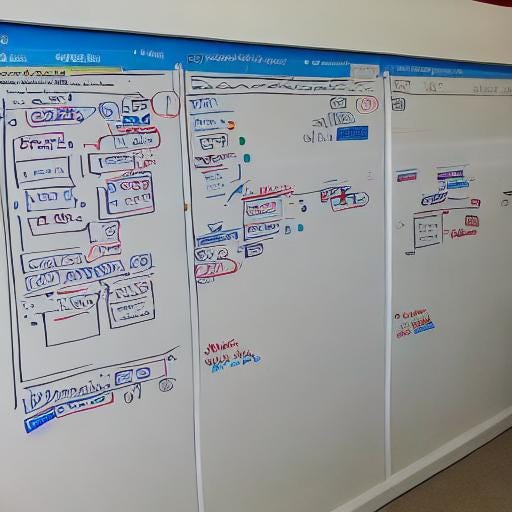I wrote a post a little while ago about how SRE is really just sneaky anarchism, and this is somewhat of a followup.
Let's briefly synthesize that earlier blog post. Essentially, my argument is that there exists a vicious cycle in software engineering which derives its power from radical ideas on how to apportion power in the workplace between "labor and management", for lack of a better word. Labor - developers, operators, whoever - chafe under the strictures and taylorized systems implemented by a slate of managers. These strictures and systems exist, primarily, to justify the value of the managers to the productive enterprise. Over time, radical elements of the labor pool will band together and codify some of their values into a term like 'agile', 'DevOps', or 'site reliability engineering' in order to claw back the power to organize their productive labor in a way that makes more sense to them. As these codes crystallize into movements, they are commodified and credentialed, then repackaged and sold to managers at other firms who seek to reap the procedural benefits. Meanwhile, the radicals have been fridged and the fruits of their labor firmly divested into a hundred eager consultant pockets.
I think this is interesting if you view problems from that context. The problem isn't, after all, that "developers don't know how to code" -- given our industry's attachment to whiteboard interviews I think we can discount that possibility -- but that developers don't have ownership. Not necessarily ownership over their code, but ownership over the results of their code. Your individual labor is rather atomized and packaged into Jira tickets so that managers can justify their role in the delivery of software.
"Wait, we need tickets and acceptance criteria and so on in order to coordinate and maintain a record of changes!" Well, no shit, that's not the problem. The problem is the disconnect you have from the productive work that you perform. Think about a feature you worked on, maybe even the first feature you worked on at your current job. Do you still maintain that code? Do you even know if that code is still running? I'd suspect the answer is no, especially if you've been somewhere for a couple of years. You've probably been re-orged at least once, maybe even several times, and the "thing that you do" has long stopped mattering. It's all just an endless set of tickets and feature requests, prioritization and sprints. You're a part of a larger whole, because the system is too complex and unwieldly for anyone to carry it all on their back anyway.
This doesn't have to be the case, I'd argue. Your individual contribution has been deliberately divorced from its productive value to the whole, because that's a "more efficient" way of doing things. What if we didn't optimize for efficiency to shareholders, however? What would a truly responsive product look like?
Continue reading "Incentives and Power"


